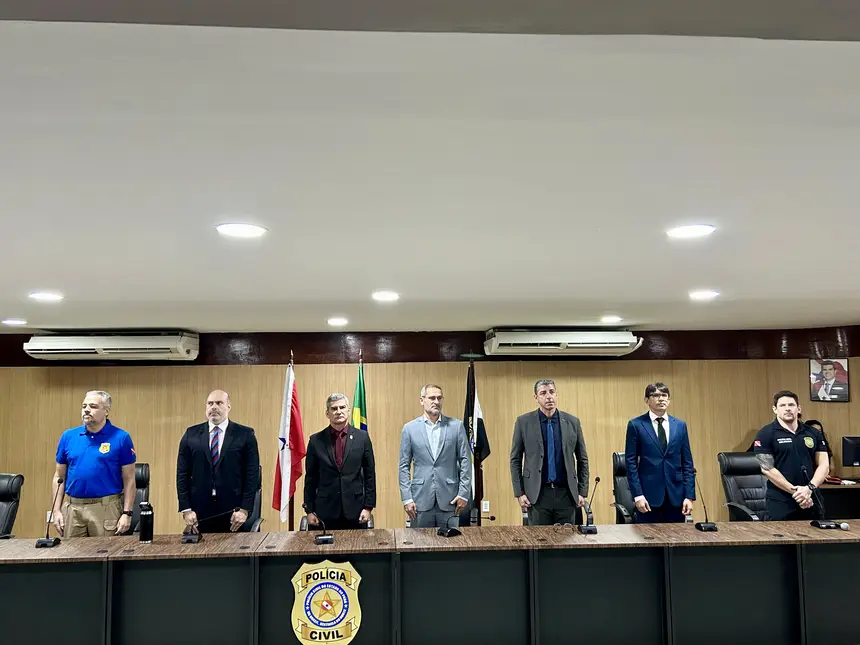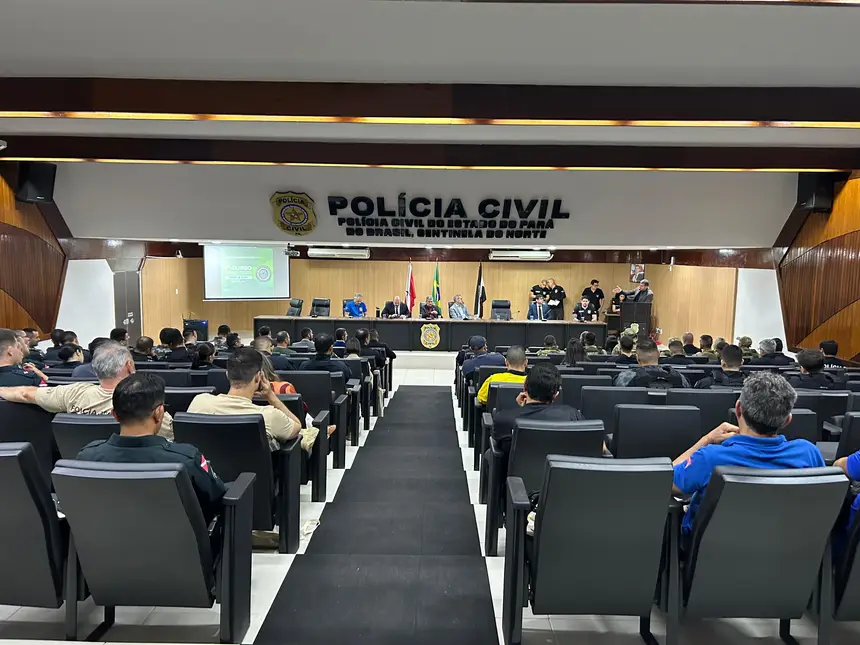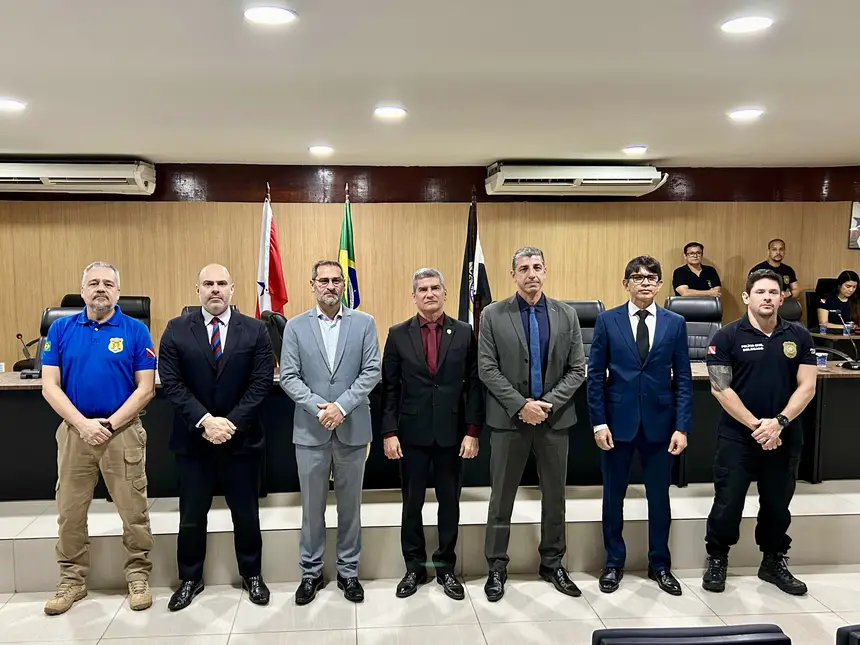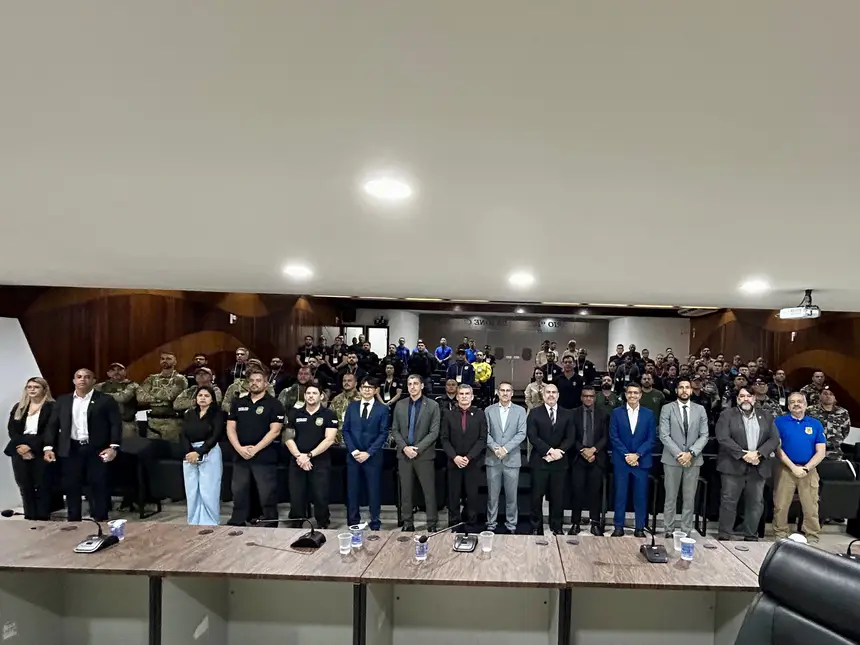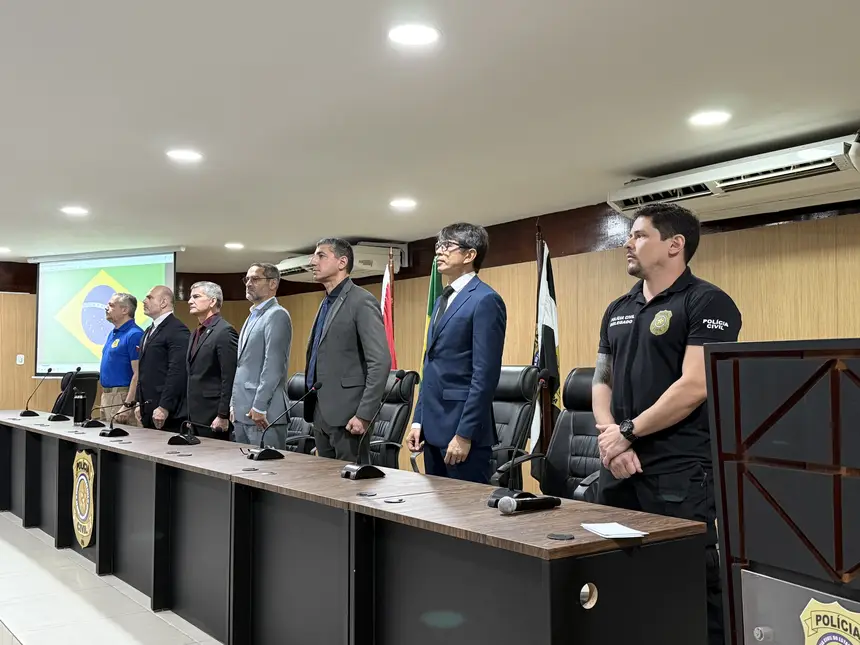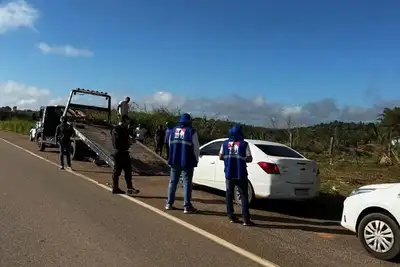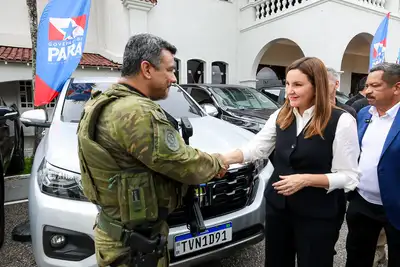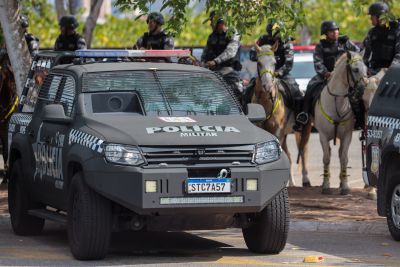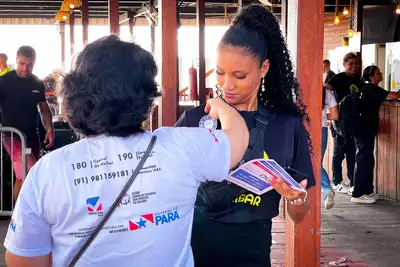Segup and the National Secretariat of Public Security promote qualification in Belém
The course aims at the integration and planning of security forces to act on complex crimes in search of agile and effective results
On the morning of this Monday (7), the official opening of the 7th edition of the Security Crisis Management Plan Course in Cities (CPGCSC) was held at the General Delegacy of the Civil Police of Pará, in Belém. The training will continue until next Friday (11), promoted by the National Secretariat of Public Security (SENASP), through the Directorate of Integrated Operations and Intelligence (DIOPI), in partnership with the State Secretariat of Public Security and Social Defense of Pará (Segup) and Security Agencies of Pará.
The course aims to train professionals from the Unified Public Security System (SUSP) and partner institutions to act in an integrated manner in managing high-complexity crises, such as city domination situations, violent crimes against property, and events involving multiple simultaneous factors.
“The main importance of this course is the integration of forces. All security forces work together in the face of violent crimes against property, terrifying actions, extremely violent, comparable to war events. With planning and joint action, the results will be much more effective, saving lives and preserving human rights,” emphasized delegate André Gossain, representative of Senasp.
During the opening ceremony, the objectives of the training were presented, which seeks to promote a cultural change in crisis management, prioritizing preventive actions and immediate responses, focusing on preserving life and maintaining public order.
“We are starting today a management course for security crises in cities, that is, aimed at those crimes that really cause a great impact, such as the ‘new cangaço’ modality and the domination of cities in bank robberies. Pará is now a national reference on this topic. We have been almost two years without any occurrences of this nature, and in the last five years, very few cases have been recorded, unlike the rest of the country, where this type of crime has increased. Therefore, we brought this course, in partnership with Senasp, to further qualify our troops, the public security agencies of the State, municipalities, and also federal institutions. Our goal is to build an effective plan and demonstrate that Pará is increasingly prepared to combat this criminality,” stated the Secretary of Public Security of Pará, Ualame Machado.
The training is aimed at members of the public security forces responsible for creating and executing the City Defense Plans.
Professionals from strategic areas, such as cash transport, energy, banking, and mining, considered potential targets in critical security contexts, also participate.
“This is an updated training in facing what we call ‘cangaço robbery’, extremely violent actions against financial institutions, which cause panic in both small towns and large centers. Here, the security forces share information, build a doctrine of integrated action, and prepare to face crime with effectiveness and excellence,” highlighted the general delegate of the Civil Police of Pará, Benassuly.
Course - The course program consists of theoretical and practical activities held from 8 am to 8 pm. Among the topics covered are: city domination, evolution of violent crimes against property, crime scene preservation, risk analysis for the defense plan, human rights and applicable legislation, as well as the methodology, construction, and implementation of defense plans. The closing is scheduled for the afternoon of Friday (11), with the presentation of case studies simulating real crisis situations, allowing participants to apply the knowledge acquired throughout the training in practice.
“The idea is that, at the end, the students multiply this knowledge in their regions, contributing to ensure that as many cities as possible in the state have structured defense plans. This strengthens the capacity of security forces in confronting gangs involved in violent crimes against financial institutions,” explained delegate Fausto Bulcão, course coordinator in Pará.


